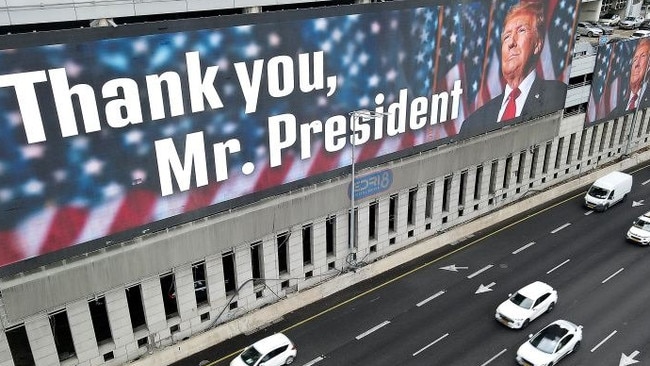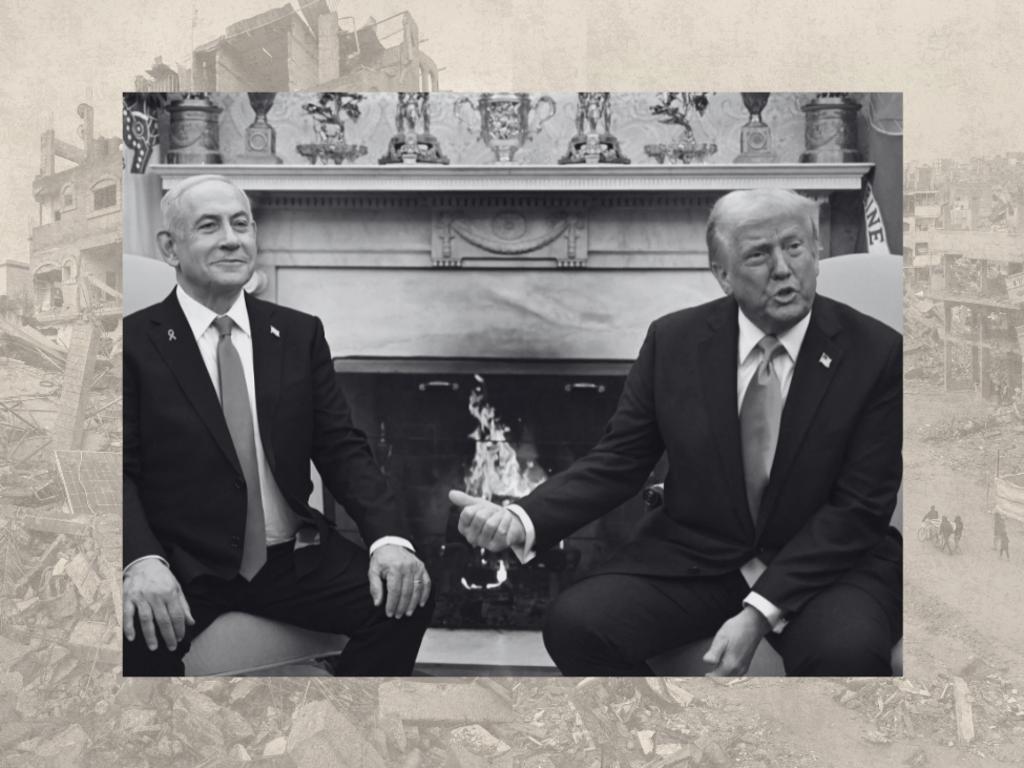Trump’s vision for Gaza revives idea once reviled in Israel
Resurgent ultranationalist movement latches on to US president’s proposal to relocate Palestinians.

When President Trump proposed to empty Gaza of close to two million Palestinians, he revived an idea that has long been taboo in mainstream Israeli politics.
But this week, no Jewish leader of a political party in Israel condemned the comments. Some even said they supported such a move.
Right-wing lawmakers celebrated the statement as going beyond even their ambitions, and some pushed for the plan to be implemented as soon as possible.
“Donald, this looks like the beginning of a beautiful friendship,” Itamar Ben-Gvir, an Israeli far-right lawmaker, wrote on X.
On Thursday, Israeli Minister of Defence Israel Katz said he had instructed the military to prepare a plan for Gazans to “leave voluntarily” to countries that would accept them.
In Trump’s vision, moving people out of Gaza is a humanitarian effort to get them out of the devastated enclave and to a safer place.
A White House spokeswoman said any displacement of Palestinians would only be temporary. The president has also said the US would take control of Gaza and redevelop it, which he says will bring “great stability to that part of the Middle East.”

The president doubled down on Thursday, saying Palestinians would be “in far safer and more beautiful communities” outside of Gaza and that the US would control the enclave. “Stability for the region would reign!!!” Trump wrote.
Displacing Palestinians from Gaza, which has been described as ethnic cleansing, has a long history as a red line in mainstream political discourse in the Middle East, including for many years in Israel. Two Israeli extremist political groups that promoted the idea were ultimately outlawed in the mid-1990s. The enthusiastic reaction here to Trump’s proposition is a mark of how far the discourse has shifted in Israel.
That shift further dims hopes that a resolution to the conflict in the Middle East will come through the two-state solution, which is still supported by most of the world including Arab states and successive US administrations.
In addition to raising moral objections, Arab countries have pointed to the security risks and instability that could come with moving a population with armed elements into countries already grappling with their own issues.

“By merely mentioning this, he’s mainstreaming an idea that was for a time morally condemned in Israel,” said Arnon Degani, a fellow at Hebrew University in Jerusalem who studies the Israeli-Palestinian conflict, referring to Trump. He said those who hadn’t considered it seriously before may now see it as a realistic option.
The Oslo Accords between Israel and the Palestinians, signed in 1993, were seen as a process that would ultimately lead to the creation of an independent Palestinian state in the West Bank, Gaza and East Jerusalem, alongside the Jewish state of Israel. But the two-state solution has been all but dead for years, with many Palestinians and Israelis no longer seeing it as realistic.
Ben-Gvir, who has advocated for what he calls voluntary migration from Gaza and was until recently a member of the government, described Trump’s plan as going beyond what he has proposed because it aims to remove nearly the entire Palestinian population of Gaza.
“I spoke about voluntary migration,” he said in an interview on Army Radio on Wednesday. “He wants to bring out all the Arabs of Gaza from there.” In the same interview, Ben Gvir said he supports encouraging voluntary Palestinian migration from the West Bank.

The idea of removing Palestinians from their lands is rooted in Zionist thought starting with the founder of Zionism, Theodor Herzl. In 1948, it took shape amid war and the creation of the state of Israel, when many Palestinians were forcibly displaced by Israel from their homes and not allowed to return. Today, there are millions of Palestinians classed as refugees, living in camps in the West Bank, Gaza, Jordan, Syria and Lebanon. Many still hope to be able to return to the lands in Israel from where they fled.
Trump says he wants Egypt and Jordan to take in Palestinian refugees. Both countries have refused to comply. Israel and Egypt have tightly controlled the borders of Gaza, limiting the number of Palestinians who can leave. About 100,000 Gazans have left the Strip since the war began, according to the Palestinian Central Bureau of Statistics.
As leader of the Jewish Power party, Ben-Gvir is the political heir of Meir Kahane, the American-born ultranationalist politician and rabbi. Kahane popularised the idea of Arab expulsion from Israel, the West Bank and Gaza, starting in the 1970s, and after three failed attempts, he entered the Israeli Parliament, or Knesset, in 1984, where he served one term.
Kahane and his ideas were so reviled that other lawmakers, including from the right-wing Likud party, which Prime Minister Benjamin Netanyahu now heads, left the room whenever he spoke.
“The idea of transfer that was proffered by Kahane, even though he didn’t make it up, was roundly rejected in Israeli political culture, except for his followers and some other people on the far right,” said Shaul Magid, who teaches modern Judaism at Harvard Divinity School and wrote a book on Kahane.

Kahane was assassinated by a gunman in New York in 1990. But Kahanism and the idea of transfer continued, albeit underground, among far-right supporters especially in settlements and in graffiti that could be spotted across Israel during the 1990s reading “Kahane was right.” But the idea was rejected by the mainstream. Soon after signing the Oslo Accords in 1993, Israel declared the two factions that succeeded Kahane’s party to be terrorist organisations. One of its former legislative candidates, Baruch Goldstein, had killed 29 Palestinian worshippers in a terrorist attack in the Cave of the Patriarchs in Hebron, and wounded another 125.
The US State Department listed Kahane’s party, Kach, as a foreign terrorist organisation in 1997, a move reaffirmed in 2003 by Secretary of State Colin Powell, and upheld by a US federal court in 2006.
It is only in recent years that Kahane’s ideas have received more attention with the rise of far-right politicians such as Ben-Gvir, who entered government in 2021.
Ben-Gvir was convicted in court in 2007 for incitement to racism and for carrying signs that read, “Expel the Arab enemy” and “Rabbi Kahane was right: The Arab lawmakers are a fifth column.”
A follower of Kahane who was once considered fringe, Ben-Gvir’s ascendance into politics gave his ideas more stock as they emerged from hiding and into the open. In an interview with The Wall Street Journal in February 2024, Ben Gvir said he supported the transfer of Palestinians from Gaza.
– Zvi Smith contributed to this article.
Dow Jones Newswires






To join the conversation, please log in. Don't have an account? Register
Join the conversation, you are commenting as Logout